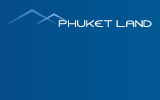Further Reading:
Price Variations Explained

This year as every year, we have been asked several times to explain why there is such a large variation in land prices over Phuket. Clients quite rightly want to understand how to get a sense of what is good or poor value.
Stripping the issue back to the economic core will enable us to approach this question in a structured manner. This should also help potential buyers in assessing the relative value and the likely marketability of their property should they wish to sell on in the future.
Land is clearly a commodity in fixed supply globally - and on a small
island like Phuket that supply is even more limited. Phuket is certainly
also very much in demand - visitors and increasingly foreign residents
and retirees are coming here in ever increasing numbers. While some
of those visitors are venturing out into neighboring provinces such
as Krabi and Phang Nga the majority stay in Phuket. So it's clear we
have fixed supply and increasing demand - the recipe, for rising prices.
That however, does not answer the question as to why some areas of
Phuket see much higher values than others. The answer must be that while
land in it's very basic sense is just a unit of space for production,
there are clearly attributes that differentiate some land from other
land. Let me use the three terms "Proximity", "Branding"
and "Aesthetics" to try to explain that differentiation.
"Proximity" - Being close to sources of demand (be they passing trade, buyers, neighbors), or being accessible to sources of supply or transportation (shops, restaurants, busses, airports) are attributes of land that have a clear and relatively quantifiable economic value. Which attribute will be of value to which buyer / owner will of course vary with the individual and the type of land use envisaged.
"Branding" - While land can be sold as a raw product, at
the residential level it is more usually sold as part of a package with
other value added services (roads, utilities, recreation facilities)
as part of a development. Land developers, just like other manufacturers,
want to differentiate their product and typically work to create the
impression of a superior product and services.
Branding (often perceived by economists as distorting their market models)
like advertising is intended to stimulate demand (increasing sales volume
or prices) and where successful, raises values above the sum of the
values of it's components. Unless brand image is destroyed, success
tends to breed success and well branded (managed) developments tend
to increase in value.
"Aesthetics" - Some land is clearly perceived as being more attractive (for a particular purpose) than others. If we are discussing resort residential property, this is where we usually get into areas of emotion and lifestyle choices. Economic theories can't explain the values of an ocean view, a sunset or the sound of waves caressing a sandy beach, or even concepts of privacy, or a quiet relaxing environment, but they are clearly attributes that many buyers seek in a property and contribute to what is prime.
Many land / home purchasers in Phuket are not making purchases for strictly productive reasons (need shelter near place of work) but are doing so as part of a lifestyle choice (we are here because we want to be - and if we don't find our dream we can look elsewhere) . In such a situation the "Aesthetic" component of a property is often the most significant factor in creating demand and ultimately determining high prices for unique lifestyle situations.
Well, I've tried my best to answer the question. If I have failed to convince you… well there is always the standard three repeated "L" word response.


